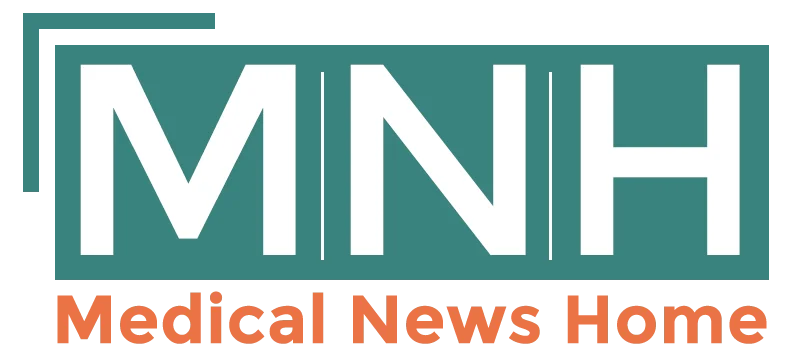Empowering Patients through Patient Portals and Health Apps
- Posted on July 13, 2023
- By Happy Kumari
- Read 7 minutes

In the modern era of healthcare, technology has revolutionized the way patients access and manage their health information. Patient portals and health apps have emerged as powerful tools that empower patients by providing them convenient access to their medical records, facilitating communication with healthcare providers, and offering valuable health management features. This article explores the concept of empowering patients through patient portals and health apps, highlighting the benefits, features, and challenges associated with these tools. It also delves into real-life success stories and envisions future trends and innovations in this domain.
Understanding Patient Portals
What Are Patient Portals?
Patient portals are secure online platforms that enable patients to access their personal health information, communicate with healthcare providers, and engage in various self-management activities. These portals serve as a centralized hub where patients can conveniently view lab results, request prescription refills, schedule appointments, and even engage in virtual consultations.
Benefits of Patient Portals
Patient portals have a number of advantages for both patients and medical professionals. Some key advantages include:
- Enhanced access to personal health information
- Improved convenience in managing appointments and prescription refills
- Efficient communication with healthcare providers
- Easy tracking of health data and lab results
Features of Patient Portals
Patient portals are equipped with a range of features that empower patients in managing their healthcare. These features may include:
- Secure access to test results and medical records
- Appointment scheduling and reminders
- Prescription refill requests
- Secure messaging with healthcare providers
- Educational resources and personalized health information
Empowering Patients through Patient Portals
Enhancing Access to Personal Health Information
One of the primary ways patient portals empower individuals is by providing them seamless access to their personal health information. Patients can review their medical history, lab results, diagnoses, and treatment plans from the comfort of their homes. This transparency enables patients to actively participate in their healthcare decisions and enhances their understanding of their conditions.
Managing Appointments and Prescription Refills
Patient portals streamline the process of managing appointments and prescription refills. Patients can make appointments, browse available timeslots, and get automated reminders. Similarly, they can request prescription refills without the need for phone calls or visits to the clinic. This convenience saves time and effort for both patients and healthcare providers.
Communication with Healthcare Providers
Effective communication between patients and healthcare providers is crucial for optimal care. Patient portals facilitate secure messaging, allowing patients to communicate their concerns, ask questions, and receive prompt responses from their healthcare team. This open line of communication fosters patient engagement and ensures that important information is relayed accurately.
Tracking Health Data and Lab Results
Patient portals often integrate with wearable devices and health-tracking apps, enabling patients to monitor and track their health data conveniently. Patients can log their blood pressure readings, glucose levels, or daily physical activity, which can be shared with their healthcare providers for better assessment and personalized recommendations. Furthermore, patients can access their lab results promptly, avoiding delays in receiving critical information.
The Role of Health Apps in Patient Empowerment
Mobile Health Apps: Revolutionizing Healthcare
In addition to patient portals, health apps have become a game-changer in patient empowerment. Mobile health apps offer a wide range of functionalities, from monitoring health conditions to facilitating mental well-being. These apps leverage the ubiquity of smartphones, empowering patients with tools that fit seamlessly into their daily lives.
Monitoring and Managing Health Conditions
Health apps cater to various medical conditions by providing tools for monitoring and managing health parameters. For instance, apps designed for diabetes management allow patients to track their blood glucose levels, log their meals, and receive personalized insights. This continuous monitoring empowers patients to make informed decisions about their lifestyle and medication choices.
Health Apps for Medication Management
Medication adherence is a critical aspect of effective treatment. Health apps offer features such as medication reminders, dosage tracking, and refill notifications, ensuring patients stay on top of their medication regimen. By promoting adherence, these apps contribute to better health outcomes and reduce the risk of complications.
Health Apps for Mental Well-being
Mental health is an integral part of overall well-being, and health apps have made significant strides in this area. There are apps specifically designed to support stress management, meditation, sleep tracking, and cognitive behavioral therapy. By providing accessible and user-friendly tools, these apps empower individuals to take proactive steps toward improving their mental health.
Overcoming Challenges and Ensuring User Adoption
Addressing Privacy and Security Concerns
Privacy and security are paramount when it comes to patient portals and health apps. It is essential to address these concerns to ensure user adoption and trust in these technologies. Measures can include:
- Implementing robust data encryption and secure authentication protocols to protect sensitive information.
- Complying with relevant privacy regulations, such as HIPAA (Health Insurance Portability and Accountability Act) in the United States.
- Providing clear and transparent privacy policies to inform users about how their data is collected, stored, and used.
- Regular security audits and vulnerability assessments are carried out to find and mitigate any issues.
- Educating users about best practices for protecting their personal information, such as strong passwords and avoiding sharing credentials.
Designing User-Friendly Interfaces
User adoption is significantly influenced by user experience. Patient portals and health apps should have intuitive and user-friendly interfaces that make navigation and usage seamless. Key considerations include:
- Simple and clear design with logical workflows.
- Responsive user interfaces that change to fit different screen sizes and devices.
- Providing contextual help and guidance throughout the user journey.
- Incorporating user feedback and conducting usability testing to identify areas for improvement.
- Ensuring compatibility with different operating systems and devices to maximize accessibility.
Promoting Digital Literacy
To fully empower patients, it is crucial to promote digital literacy and ensure that individuals have the necessary skills to utilize patient portals and health apps effectively. Strategies for promoting digital literacy include:
- Providing user guides, tutorials, and video demonstrations to educate users about the features and functionalities of the platforms.
- Offering training programs or workshops to enhance digital skills among patients, particularly those who may be less familiar with technology.
- Collaborating with community organizations and healthcare providers to spread awareness and provide support in using these tools.
- Simplifying complex technical terminology and providing clear instructions in plain language.
- Incorporating user feedback to continually improve user experience and address any usability challenges.
Success Stories: Realizing the Benefits
Case Study: Improving Chronic Disease Management
In a real-life case study, a patient portal and health app were implemented to improve chronic disease management. The platform allowed patients with conditions like diabetes, hypertension, and asthma to access their medical records, track their vital signs, and receive personalized recommendations. The use of these tools resulted in better adherence to treatment plans, improved patient-provider communication, and reduced hospital readmissions.
Case Study: Empowering Patients with Telemedicine
Another success story revolves around the integration of patient portals and health apps with telemedicine services. Patients could schedule virtual consultations, securely communicate with their healthcare providers, and receive e-prescriptions through the platform. This approach increased access to healthcare services, particularly for individuals in remote areas, and improved overall patient satisfaction.
Future Trends and Innovations
Artificial Intelligence in Patient Portals and Apps
Artificial intelligence (AI) holds immense potential in patient portals and health apps. AI-powered chatbots can provide personalized health recommendations, answer common queries, and triage patient concerns. Machine learning algorithms can analyze large datasets to identify patterns, predict health outcomes, and offer proactive interventions. As AI technology continues to advance, patient empowerment is expected to reach new heights.
Wearable Devices and Remote Monitoring
The integration of wearable devices with patient portals and health apps is an exciting frontier. These devices, such as fitness trackers and smartwatches, can capture real-time health data and seamlessly sync it with the platforms. Patients can monitor their activity levels, heart rate, sleep patterns, and more, enabling a holistic approach to health management. Remote monitoring technologies also hold promise for post-operative care, chronic disease management, and early detection of health issues.
Conclusion
Empowering patients through patient portals and health apps has transformed the healthcare landscape. These digital tools provide individuals with convenient access to their health information, facilitate communication with healthcare providers, and empower them to actively participate in their care journey. By addressing privacy concerns, designing user-friendly interfaces, and promoting digital literacy, the potential for patient empowerment can be fully realized. As technology continues to advance, patient portals and health apps will play an increasingly vital role in enhancing healthcare outcomes and improving the overall patient experience.
